Careful decoying combined with roost shooting pays off for a Cotswold keeper in his quest to control corvid numbers. Paul Quagliana reports.

A significant part of a keeper’s role is vermin and predator control. Traditionally, the gap between the pheasant and partridge season and the start of the rearing season is a time for drey poking, foxing and corvid control. Not only is it vital for a keeper to look after his game, but vermin control before songbirds start nesting can reduce the threat of predation and offer help to endangered species as well.
Alex Keeble, who keepers on an estate in the Cotswolds, has his hands full with corvid control. “The ground I am on has always held large numbers of corvids, primarily carrion crows, rooks and jackdaws,” he said. “There is a lot of livestock farming and plenty of cattle feed that can attract these birds. There is also a need to control corvids at this time of year because it is lambing time and eye-pecking of newborn lambs can be a problem.”
Alex stresses that nobody wants to wipe out vermin and predators but it is vital to keep a lid on their populations. He is particularly keen on letterbox traps and suggested: “You just need to know a bit of fieldcraft to get the best results.” He also counts Larsen traps as a particularly useful part of his arsenal.
However, on this dull and freezing February morning, Alex was planning to decoy corvids in daylight, followed by shooting them at roost, thus maximising the time available.
The spot he had chosen was a maize strip that formed part of a new partridge drive which had proved successful during the season. The maize had started to collapse on its dead and rotting stems and had been flattened, providing easy food for corvids and a good spot to decoy.
Esta historia es de la edición March 8,2017 de Shooting Times & Country.
Comience su prueba gratuita de Magzter GOLD de 7 días para acceder a miles de historias premium seleccionadas y a más de 9,000 revistas y periódicos.
Ya eres suscriptor ? Conectar
Esta historia es de la edición March 8,2017 de Shooting Times & Country.
Comience su prueba gratuita de Magzter GOLD de 7 días para acceder a miles de historias premium seleccionadas y a más de 9,000 revistas y periódicos.
Ya eres suscriptor? Conectar
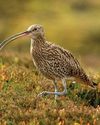
United we stand
Following United Utilities' decision to end grouse shooting on its land, Lindsay Waddell asks what will happen if we ignore our vital moors

Serious matters
An old gamebook prompts a contemplation on punt-gunning

They're not always as easy as they seem
While coneys of the furry variety don't pose a problem for Blue Zulu, he's left frustrated once again by bolting bunnies of the clay sort
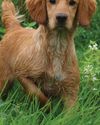
Debutant gundogs
There's lots to think about when it comes to making the decision about when to introduce your dog to shooting
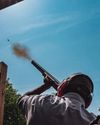
When the going gets rough
Al Gabriel returns to the West London Shooting School to brush up on his rough shooting technique

The Field Guide To British Deer - BDS 60th Anniversary Edition
In this excerpt from the 60th anniversary edition of the BDS's Field Guide To British Deer, Charles Smith-Jones considers the noise they make
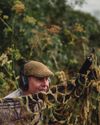
A step too far?
Simon Garnham wonders whether a new dog, a new gun and two different fields in need of protection might have been asking too much for one afternoon's work
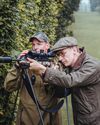
Two bucks before breakfast
A journey from old South London to rural Hertfordshire to stalk muntjac suggests that the two aren't as far detached as they might seem
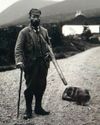
Stalking Diary
Stalkers can be a sentimental bunch, and they often carry a huge attachment to their hill

Gamekeeper
Alan Edwards believes unique, private experiences can help keepers become more competent and passionate custodians of the countryside